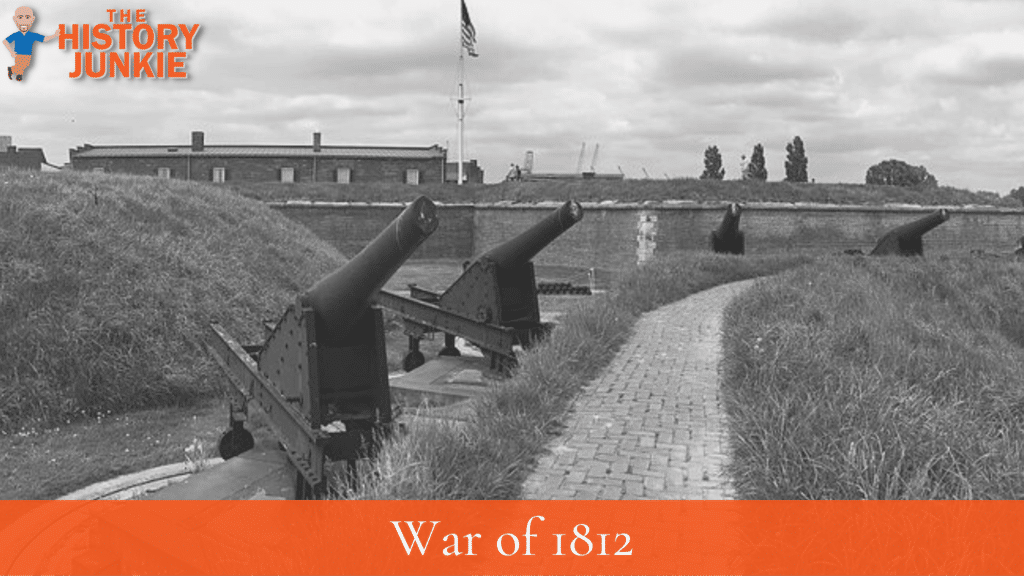
Common Questions
Jump to:
- Common Questions
- #1. James Madison Fled The White House
- #2. There Were Four Main Causes For The War of 1812
- #3. The Star Spangled Banner Was Written During The War
- #4. Tecumseh's Plan Failed
- #5. Andrew Jackson Became A National Hero
- #6. The War Would Emphasize How Important It Was For America To Build a Strong Navy
- #7. The War Was A Draw
- #8. The Native Americans Were The Real Losers
Who Fought In The War of 1812?
The war was primarily against the United States, Great Britain, and Native Americans. Most tribes were allied with the British. However, there were some that allied with the Americans.
How Long Was The War of 1812?
June 1812 - February 1815. Two years and eight months. The last battle was the Battle of New Orleans, which was fought on January 8, 1815. The Treaty of Ghent had been signed on December 24, 1814, which technically ended the war, but the news did not travel quickly enough to stop the final battle.
Who Won The War?
This answer depends on who you talk to. Technically, the British won the war because they defended their land holdings from an invading force. However, Americans claimed they won the war after the Battle of New Orleans and because it opened up expansion into the Great Lakes. The war was a draw, with the only real loser being the Native Americans.
Did The Treaty of Ghent End The War?
President James Madison sent the treaty to the Senate on February 16, 1815, to vote on it. It was unanimously approved and then ratified, which ended the war.
#1. James Madison Fled The White House

During the War of 1812, James Madison had a lot of firsts.
He would be the first acting President to lead the military on the White House grounds.
He would also be the first President to flee the White House from an enemy.
He is the only President to see the White House burn.
While fleeing the White House, his wife rescued a picture of George Washington that still hangs in the White House today.
#2. There Were Four Main Causes For The War of 1812
The War of 1812 had four primary causes:
- European Conflict - The Napoleonic Wars created an opportunity for America to try and catch Great Britain preoccupied.
- British Impressment - After winning the Revolutionary War, the British never respected American sovereignty. One of the worst things they did was impressment, where they would kidnap American sailors and force them to serve in the British Navy.
- American Expansionism - American Expansionism drove many Americans to settle on the frontier, which caused conflict with the Native Americans. This would create enemies with many northeast Indian tribes.
- The Second Term of Thomas Jefferson - Thomas Jefferson's second term is not discussed much. There is a reason for that. He destroyed the military and left the United States vulnerable to Great Britain when the War began. He created gunboats instead of large warships. These gunboats were ineffective and a joke. The ships that would be successful during the war were built during the Adams administration.
#3. The Star Spangled Banner Was Written During The War
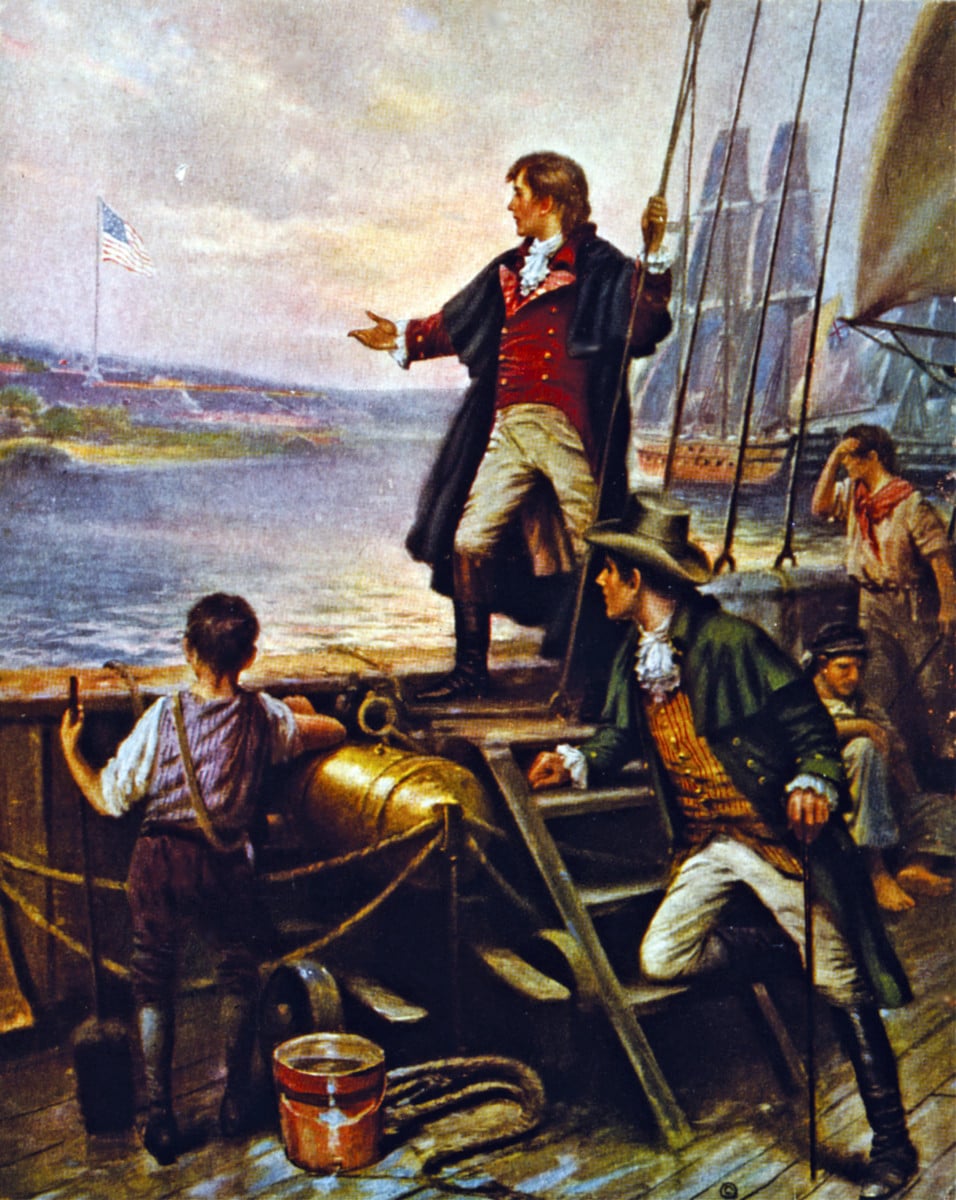
Francis Scott Key authored the Star Spangled Banner during the Battle of Baltimore. It was during this battle that he watched the flag continue to wave and not be taken down.
It was a victory for the United States despite Great Britain's superior technology on the high seas.
The song would catch on, and by the time of the Mexican-American War, it would be sung by the soldiers. It would become the national anthem in 1931 By President Herbert Hoover.
#4. Tecumseh's Plan Failed
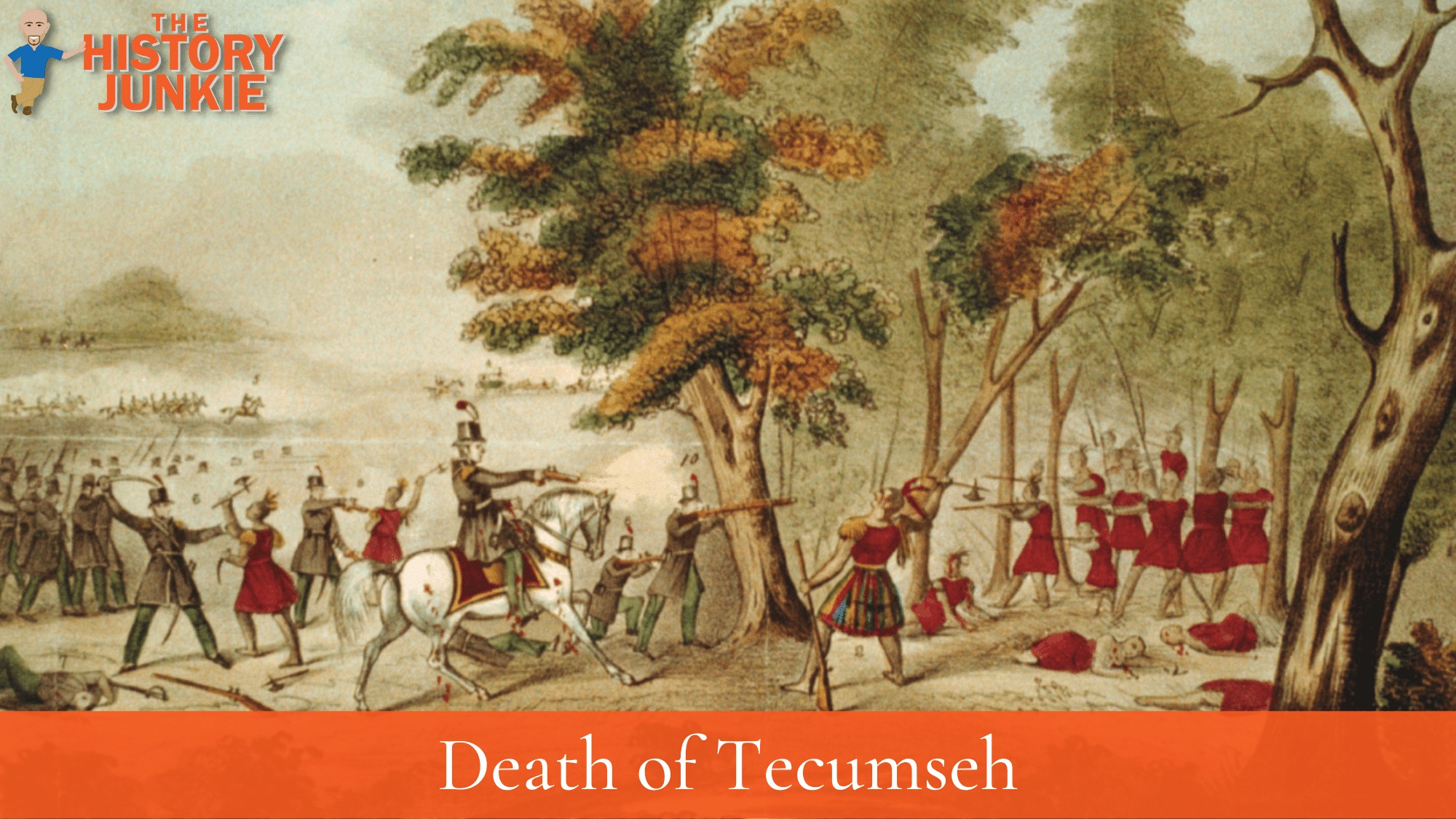
Tecumseh had a plan to create a buffer nation of Native Americans that would create a nation between British Canada and the United States.
His plan would not work as he was unable to get enough Indians to ally with each other. His idea would be further discouraged after his death at the Battle of the Thames.
Tecumseh was heavily influenced by Joseph Brant, a Mohawk chief during the Revolutionary War who wanted to accomplish something similar.
#5. Andrew Jackson Became A National Hero
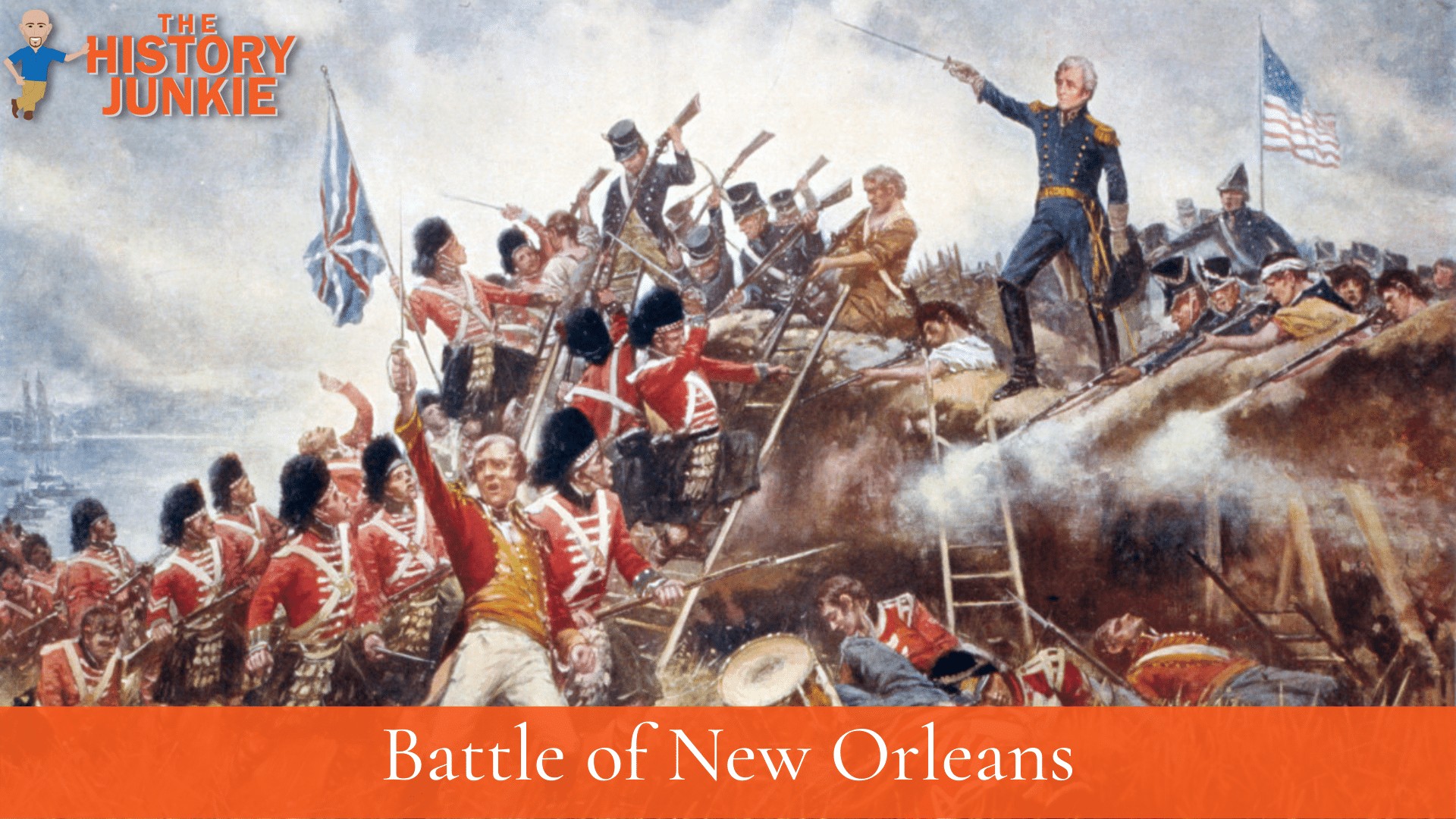
The War of 1812 created new heroes for America's youth to look up to, and one of them was General Andrew Jackson, who was the hero of Horseshoe Bend and New Orleans.
His victory at the Battle of New Orleans would catapult him onto the national stage and make him a hero that would eventually lead to the White House. The battle was significant because it was against Napoleonic War veterans and was a tactical masterpiece.
He would eventually become the seventh President of the United States and would always be a hero to the common man until his death.
#6. The War Would Emphasize How Important It Was For America To Build a Strong Navy
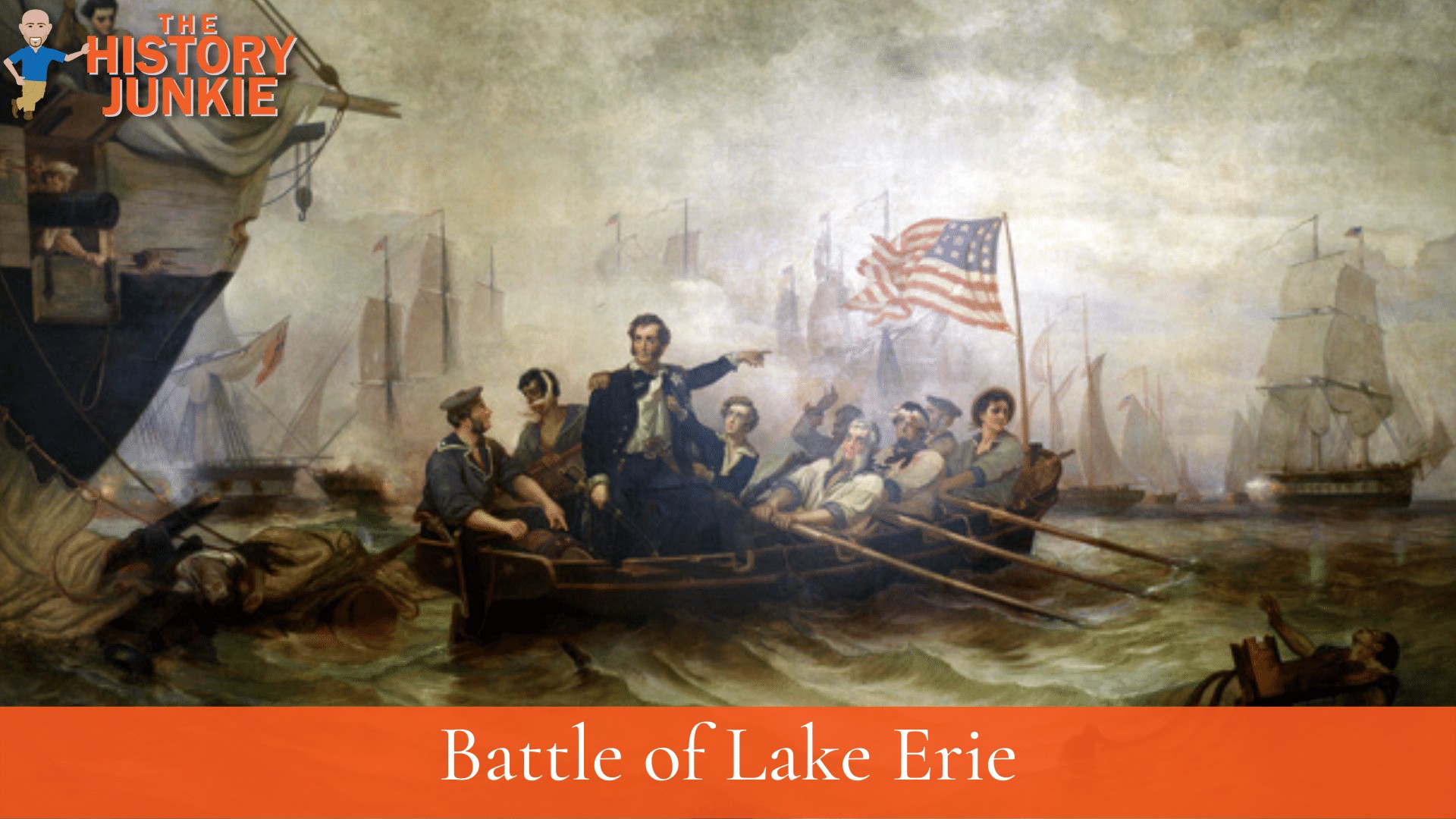
As stated previously, Thomas Jefferson did not believe in a strong Navy, which was different from his predecessors, who invested in building a strong navy.
After the War of 1812, it would be clear that America needed a strong navy to protect itself from foreign powers. They had seen success at the Battle of Lake Erie and victories won by the USS Constitution.
By the time of the Civil War, the United States had revamped its navy to be one of the best in the world. It would become that during the Presidency of Theodore Roosevelt almost 100 years later.
#7. The War Was A Draw
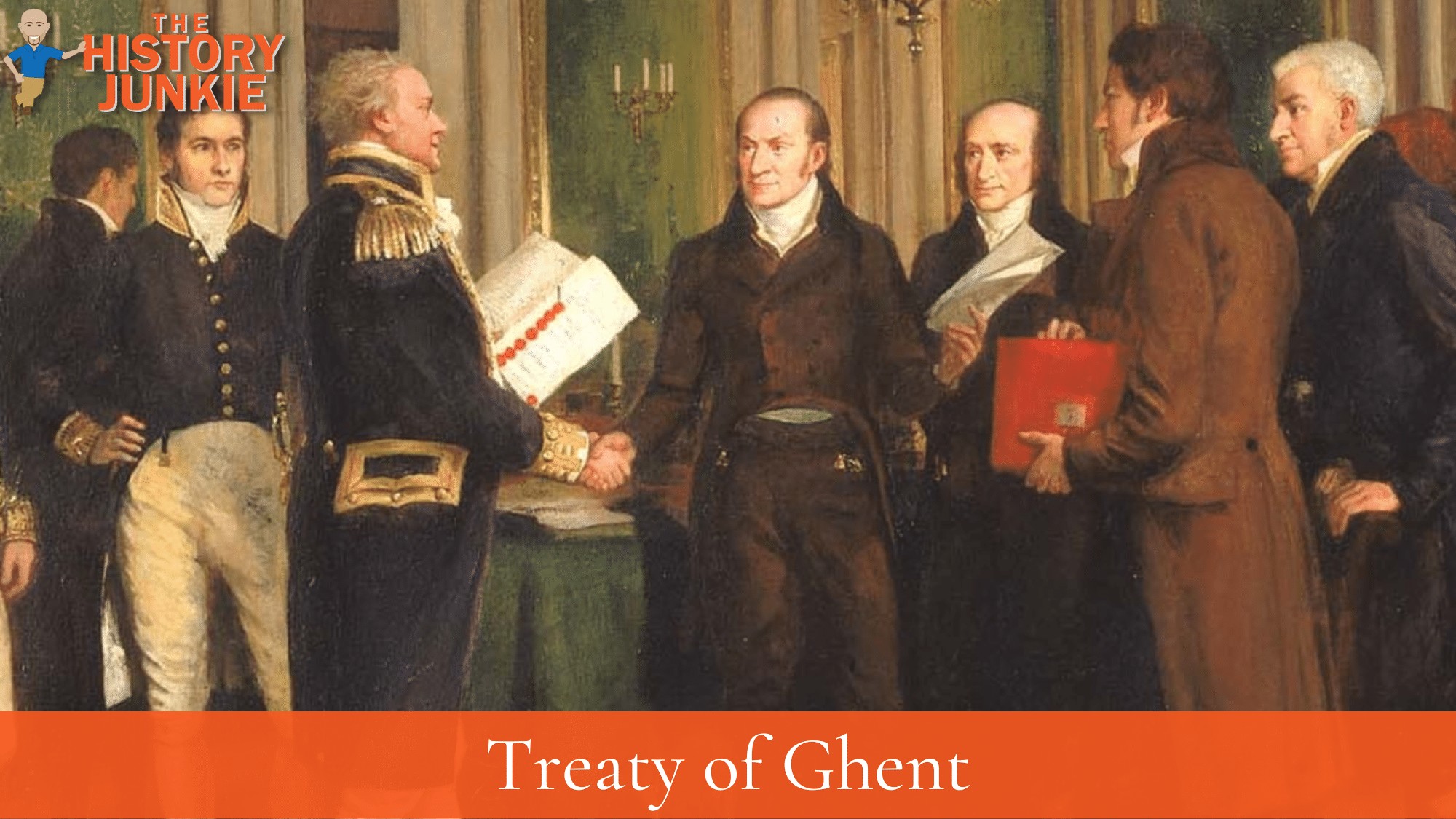
The War of 1812 was probably a war that could have been avoided. There was not a clear winner, and everything remained the same.
One could argue that it helped with the development of the Navy, but at what cost? Husbands and sons died in a war that did not have many benefits.
It did end British Impressment, but it could be argued that a stronger navy would have also ended it.
The War of 1812 is known as the forgotten war, and it is because of this. It is largely believed to have been an avoidable war.
#8. The Native Americans Were The Real Losers
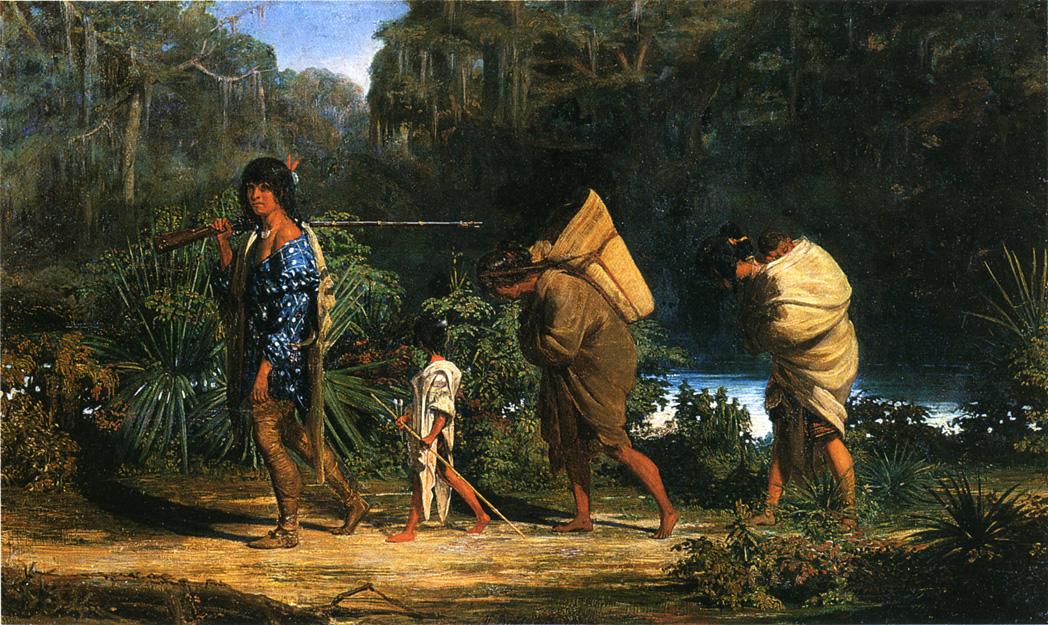
The British pulled back after the war was over, but America continued to expand. Tecumseh had hoped that he could create a new nation, but after his death, it was not possible.
They had fought the Americans, and although the war ended in a draw, they were not successful in their mission and would be seen as enemies. They would be conquered within the coming decades.
They had sided with the wrong side too many times. They sided with the French during the French and Indian War, The British during the Revolutionary War, and again during the War of 1812.
They were too tribal and unable to unite. There were many tribes that sided with the Americans. While the southwestern Indians would eventually come into conflict as America expanded west after the Civil War, the War of 1812 would end any possibility of the Northeast and Southeast Indians maintaining sovereignty.
